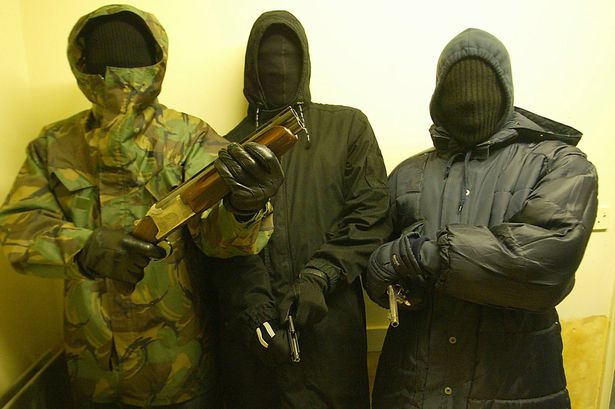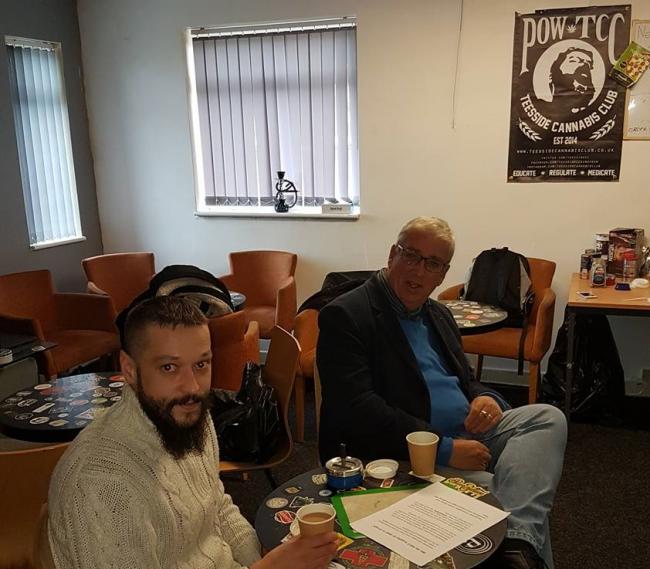Leading Police and Crime Commissioner believes “sensible discussion” needed on cannabis in the UK
- Hardyal Dhindsa, PCC for Derbyshire, “impressed” by UK’s increasing numbers of cannabis clubs
- Dhindsa joins a growing number of PCCs calling for a rethink on cannabis laws in the UK
- 100s of cannabis clubs have been founded in the UK in recent years
- The British Government rejects all advise to decriminalise or legalise cannabis from top advisers
Hardyal Dhindsa, the Police and Crime Commissioner (PCC) responsible for drug abuse in the UK, made fresh calls for decriminalising cannabis this week.
Dhindsa, the PCC for Derbyshire who and the lead on substance abuse for the Association of Police and Crime Commissioners, claimed that the war on drugs is not working, saying it was time to have a fresh look at alternatives for tackling drug addiction and use.

A Home Office spokesman, however, refuted Dhindsa’s argument, saying the Conservative-led government has no plans to decriminalise cannabis for recreational use. The spokesman said legalising, or decriminalising, cannabis would send the “wrong message,” adding:
“Scientific and medical evidence is clear that recreational cannabis use can cause harm to individuals and society.”
Recent research from America following the legalisation of cannabis in various States, however, contradicts the Government’s official stance on cannabis.
Contrary to the claims that legalising cannabis would “harm society,” a study published in The Economic Journal, found that the rate of violent crime, including murder, aggravated assaults and robberies, fell by 12.5% in counties close to the border with Mexico following the introduction of “medical marijuana laws” (MMLs).

Discussing the study in The Independent, Professor Evelina Gavrilova, said:
“MMLs allow people to grow and cultivate marijuana plants legally within the US.
“This means that people don’t need to buy illegal marijuana anymore so drug trafficking organisations (DTOs) have far fewer customers.”
“What impressed me [about cannabis clubs] was that they are offering support, it is regulated, they have got a membership.”
– Hardyal Dhindsa, Police and Crime Commissioner for Derbyshire
Legalising cannabis strangles gangs of their income, weakening their impact on society.
Keeping cannabis illegal, as the Conservative government desires, only strengthens the power violent gangs have over vulnerable societies in the UK.
Earlier this week, Lord Alan Sugar called for cannabis to be legalised to help alleviate the increasing violence on London’s streets following the 250th death by fatal stab wounds in the city this year.

Recent research from King’s College London also argues that keeping cannabis criminalised is causing more harm to society than legalising it would.Discussing the results of the study, senior author Dr Marta Di Forti, explained how an unregulated market in the UK increases the potential risk of users’ developing mental health issues due to a dominance of high strength cannabis:
“…we have shown that regular users of high-potency cannabis carry the highest risk for psychotic disorders, compared to those who have never used cannabis.
“The increase of high-potency cannabis on the streets poses a significant hazard to users’ mental health, and reduces their ability to choose more benign types.”
By preventing cannabis users to option to purchase cannabis in legal shops or pharmacies, preventing them the choice between high or low strength cannabis strains, the Government is forcing users, including medical patients, to buy exclusively strong cannabis from dangerous gangs. There is an alternative though.
Cannabis clubs offer a safer alternative to both recreational and medicinal cannabis users.
Mr. Dhindsa is just one of the growing numbers of PCCs who have visited some of the growing numbers of cannabis clubs in the UK.

Whilst refraining from offering his support for these clubs, Dhindsa expressed concerns that decades of “the war on drugs” had failed to stop the use or supply of illegal drugs”
“As with tobacco, education and regulation is a much better way of making a difference.
“What impressed me [about cannabis clubs] was that they are offering support, it is regulated, they have got a membership.
“They are not allowing people to make profit out of this and allowing for personal use, which many people do in this country irrespective of what the law is.
“But I think we need to have a grown-up and sensible discussion about why people continue to use drugs and demand has not gone down.”
Arfon Jones, the PCC for North Wales, has also expressed his support for the work cannabis clubs do for their local societies.
Discussing his visit to Teesside Cannabis Club, Mr Jones, welcomed the creation of similar clubs across the country:
“I visited Teesside Cannabis Club because I wanted to see how it was run. The members bring their own cannabis. It isn’t grown on the premises and they’re not dealing or supplying.
“There are pubs and clubs where people go and drink alcohol so why shouldn’t consenting adults be able to use cannabis recreationally and without causing anyone any harm?”
Is it time for the British Government to end its failed war on drugs and legalise or decriminalise cannabis for recreational, as well as true medicinal access, or should we continue allowing dangerous criminal gangs to flood the black market with the strongest form of cannabis?
